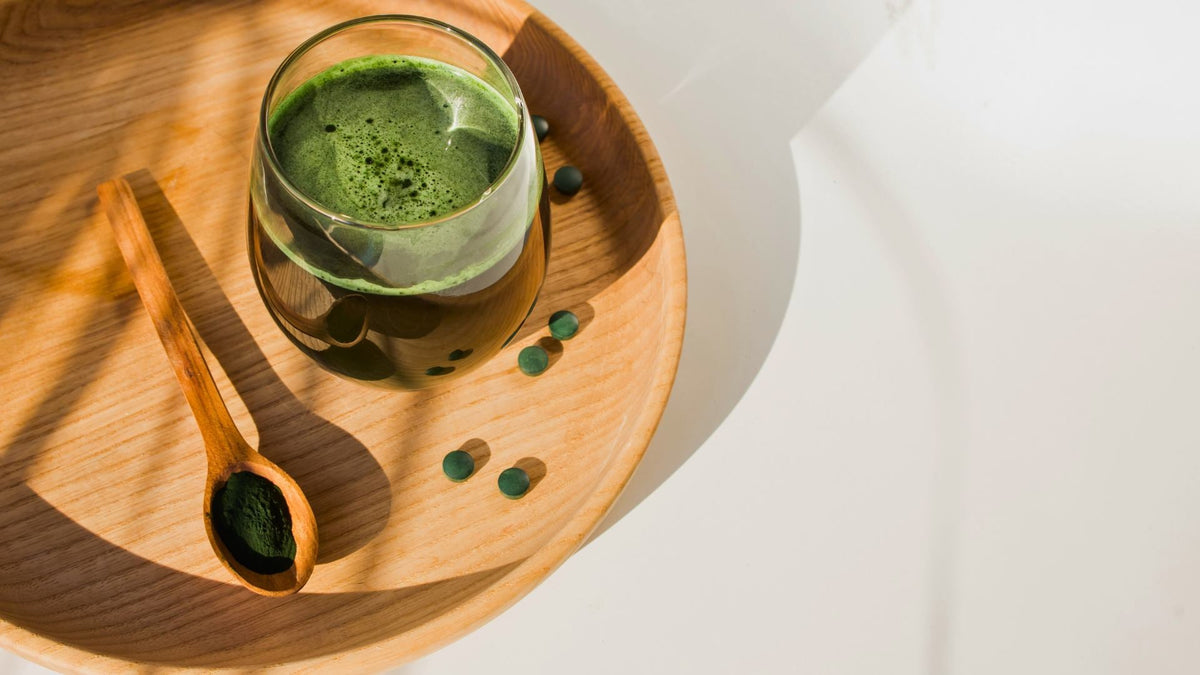
Does Chlorella Contain Iodine?
|
|
Time to read 4 min
This store requires javascript to be enabled for some features to work correctly.
|
|
Time to read 4 min
Disclaimer: The information provided in this article is for informational purposes only and is not intended as a substitute for professional medical advice, diagnosis, or treatment. Always seek the advice of your physician or other qualified healthcare provider with any questions you may have regarding a medical condition or before making any changes to your diet or lifestyle, especially if you have existing health conditions.
Exploring the iodine content in Chlorella can be challenging due to the limited number of studies specifically addressing this subject. Despite the scarcity of research, this very quick guide aims to provide a summarised answer based on available references and further reading, which are mentioned at the end of this article.
Chlorella, can contain varying amounts of iodine, and this largely depends on the conditions in which it is grown. The iodine content in Chlorella can be minimal or even non-existent if it is cultivated in freshwater farms where the water is filtered multiple times using natural spring water. In such controlled environments, the iodine content could effectively be zero.
Conversely, the iodine content in Chlorella can be significantly enhanced if the algae are fed iodine-rich nutrients during cultivation. For instance, studies have shown that microalgae like Chlorella can be biofortified with iodine, making them a valuable dietary source of this essential mineral. This process involves adding iodine to the growth medium, which the algae then absorb and incorporate into their cells.
Additionally, the natural iodine content in Chlorella can vary based on geographical location and environmental factors. For example, Chlorella grown in areas with iodine-rich soil and water will naturally have higher iodine levels. This variability highlights the importance of understanding the source and cultivation practices when considering Chlorella as a dietary supplement.
However, I did find this one study (summarised in references and further reading) at the bottom of the article, that wrote about the impact of Regular Intake of Microalgae on Nutrient Supply and Cardiovascular Risk Factors, in it was mentioned that per 5 grams of Chlorella powder contained approximately 11.27 micrograms of iodine - please note as this is only one study so the iodine can be very different from one manufacturer to the next. In general, Chlorella supplements should be naturally low in iodine but I will explain in the next section how to double check this.
To ensure that the Chlorella you consume contains no iodine, consider the following steps:
Check the Source: Look for Chlorella products that are specifically cultivated in freshwater farms with controlled environments. Ensure that the water used is filtered multiple times using natural spring water, which minimises the presence of iodine.
Read Product Labels: Carefully read the labels and product descriptions provided by manufacturers. Reputable brands will often disclose the nutritional content of their products, including the presence or absence of iodine.
Contact Manufacturers: If the information is not readily available on the product label, contact the manufacturer directly. Ask about their cultivation practices and whether their Chlorella contains iodine. Request a certificate of analysis if possible.
The recommended daily intake of iodine varies by age and life stage. The NHS mentioned that for adults, the recommended amount is about 150 micrograms per day. Pregnant and breastfeeding women require higher amounts, according to the National Institutes of Health, approximately 220 (pregnancy) to 290 micrograms per day is recommended to support the increased needs of their developing baby.
This study investigated the effects of daily consumption of Chlorella pyrenoidosa and Microchloropsis salina over 14 days in 80 participants. The Chlorella smoothie, containing 33.8 µg of iodine per 350 mL, increased vitamin D2 and B12, decreased selenium and iron, improved blood lipids, and raised uric acid levels, indicating potential health risks.
Publication Date: March 28, 2023: Authors: Fabian Sandgruber, Anna-Lena Höger, Julia Kunze, Benjamin Schenz, Carola Griehl, Michael Kiehntopf, Kristin Kipp, Julia Kühn, Gabriele I. Stangl, Stefan Lorkowski, and Christine Dawczynski.
2. Summary of Iodine Information from NIH
The NIH Office of Dietary Supplements provides comprehensive information about iodine, its importance for thyroid function and overall health, dietary sources, recommended daily intakes, and the consequences of deficiency and excess. It also discusses iodine needs during pregnancy and lactation, as well as interactions with medications and conditions that can affect iodine absorption and utilisation.
3. Chlorella - Summary from Dr. Axe
Chlorella supplements often contain iodine, which is important for those monitoring their iodine intake or who have iodine allergies.
4. Iodine Speciation in Iodine-enriched Microalgae Chlorella vulgaris
Study Overview: The study titled "Iodine Speciation in Iodine-enriched Microalgae Chlorella vulgaris" examined the iodine content and types in Chlorella vulgaris grown with potassium iodide. Using advanced testing methods, researchers found that most of the iodine in Chlorella is water-soluble (66.7%), mainly in the forms of iodide (75%) and iodate (25%). This indicates Chlorella can effectively absorb iodine, making it a good candidate for iodine-enriched functional foods.
Authors, Journal, and Date: Veronica Gómez-Jacinto, Ana Arias-Borrego, Tamara García-Barrera, Ines Garbayo, Carlos Vilchez, and José Luis Gómez-Ariza; Pure and Applied Chemistry; January 30, 2010
Chlorella can contain varying amounts of iodine, depending on its cultivation conditions. Freshwater-farmed Chlorella may have minimal or no iodine. It is best to double check with the manufacturer.
People with thyroid conditions should check the iodine content in Chlorella and consult a healthcare provider, as iodine intake affects thyroid function.